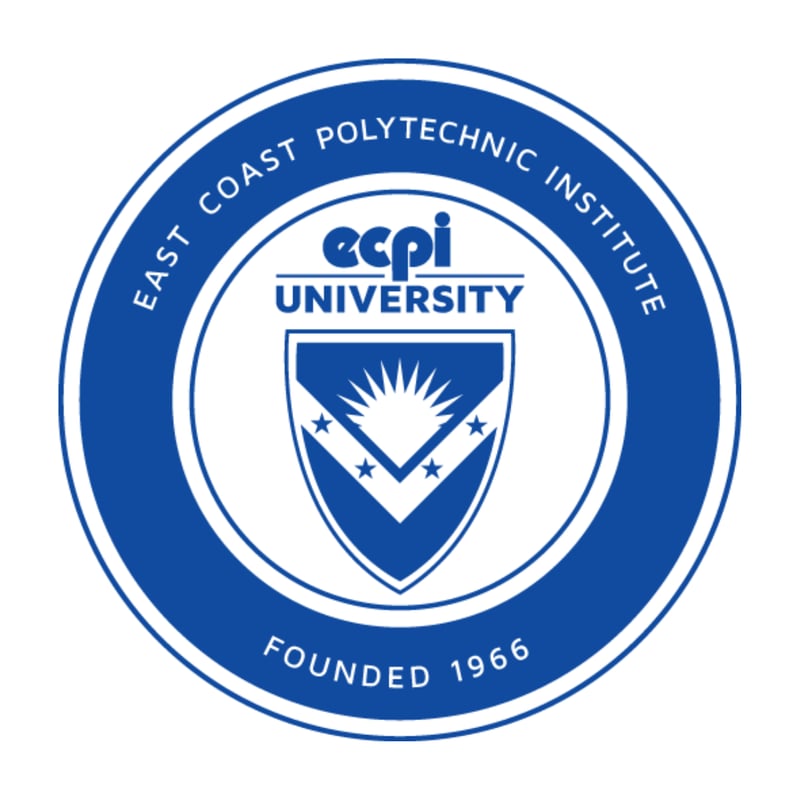
Financial aid (may be available)

No cost info

Financial aid (may be available)

Financial aid (may be available)

Financial aid (may be available)

Financial aid (may be available)

Financial aid (may be available)

No cost info

Financial aid (may be available)

Financial aid (may be available)
Learn about the components of supply chains including supply chain networks, supply chain facilities, transportation, and inventory management as well as how emerging technologies affect them with our Supply Chain Fundamentals Certificate. These courses are perfect for learners seeking to enter the supply chain profession, as well as those who are seeking to enter supervisory roles or enter a new domain within the supply chain.
No cost info
This certificate program provides a foundation in supply chain and logistics management from both a U.S. as well as global perspective, preparing participants for professional careers with manufacturers and distributors, transportation carriers, and logistics service providers.
No cost info
American Military University (AMU) offers a logistics management certificate at the graduate level. It provides in-depth study of logistics and supply chain management with consideration of global impacts.
AMU’s online logistics certificate emphasizes transportation factors related to logistics, especially the maritime industry. The curriculum covers topics such as:
Transportation policy and planning
Transportation management and economics
Port and terminal operations
This program is an appropriate choice for those who wish to increase their knowledge of logistics and supply chain management without committing to a full degree program.
No cost info
No cost info
The online Logistics and Supply Chain Management Certificate from CCU will help you gain a deeper understanding of the processes and fundamentals within supply chain and inventory management, including purchasing and inbound logistics; material handling in distribution centers; warehousing and warehouse management; financial and inventory controls; transportation and distribution; and reverse and global logistics.
No cost info

$2,730 total

No cost info
No cost info

$2,625 total

$2,625 total
Logistics is an essential component of any business that involves the movement of goods and materials. It encompasses everything from transportation and inventory management to warehousing and distribution. As a result, there is a growing demand for skilled professionals in the field of logistics. If you are interested in pursuing a career in logistics and are looking for classes near you in Stockton, you've come to the right place. In this blog post, we will explore what logistics is, the training requirements, what to look for in a class, what to expect from the day-to-day class, the certification process, how to find related jobs, and other classes you can take after becoming a logistics professional.

Logistics is the process of planning and coordinating the movement of goods and materials from one location to another. It involves various activities such as inventory management, warehousing, transportation, and distribution. Effective logistics management is crucial for businesses to ensure that products are delivered to customers on time and at the right cost.
To pursue a career in logistics, you will need to acquire the necessary skills and knowledge through vocational training. While there are no specific educational requirements for entry-level positions in logistics, employers often prefer candidates who have completed relevant training programs. These programs provide a comprehensive understanding of logistics principles and practices, as well as hands-on experience in using industry-specific software and tools.
When searching for logistics classes near you in Stockton, there are a few key factors to consider to ensure that you choose the right program for your needs. Here are some things to look for:
Accreditation: Make sure that the logistics class you choose is accredited by a recognized accrediting body. This ensures that the program meets certain quality standards and that the training you receive will be recognized by employers in the industry.
Curriculum: Review the curriculum of the logistics class to ensure that it covers all the essential topics and skills required for a career in logistics. Look for courses that cover areas such as transportation management, inventory control, supply chain management, and logistics technology.
Hands-on Experience: Practical experience is essential in the field of logistics. Look for classes that offer hands-on training opportunities, such as internships or co-op programs, where you can apply the concepts and skills you have learned in a real-world setting.
Industry Connections: Check if the logistics class has partnerships or connections with local businesses or industry associations. This can provide valuable networking opportunities and potential job placement assistance after completing the program.
Logistics classes typically combine classroom instruction with hands-on training activities. Here are some things you can expect from the day-to-day class:
Classroom Instruction: You will attend lectures and discussions led by experienced instructors who will cover the theoretical aspects of logistics. Topics may include supply chain management, transportation systems, inventory management, and logistics technology.
Practical Training: In addition to classroom instruction, you will have the opportunity to apply what you have learned through hands-on training. This may involve using logistics software, participating in simulations or case studies, and working on group projects.
Guest Speakers: Some logistics classes may invite guest speakers from the industry to share their expertise and provide insights into real-world logistics operations. This can be a valuable opportunity to learn from professionals who are currently working in the field.
While certification is not required to work in the field of logistics, earning a certification can enhance your job prospects and demonstrate your commitment to professional development. There are several certifications available for logistics professionals, including:
Certified Supply Chain Professional (CSCP): Offered by the Association for Supply Chain Management (ASCM), this certification validates your knowledge and skills in supply chain management.
Certified Professional in Logistics and Supply Chain Management (PLS): This certification, offered by the International Society of Logistics (SOLE), demonstrates your expertise in logistics and supply chain management.
Certified Logistics Professional (CLP): The CLP certification, offered by the American Society of Transportation and Logistics (ASTL), is designed for professionals who have a broad understanding of logistics principles and practices.
To earn these certifications, you will need to meet certain eligibility requirements, such as completing a specific number of years of relevant work experience and passing an exam.
After completing your logistics training, you will be ready to explore various job opportunities in the field. Here are some common job titles in logistics:
Logistics Coordinator: Responsible for coordinating the transportation and delivery of goods, managing inventory, and ensuring smooth logistics operations.
Warehouse Supervisor: Oversees warehouse operations, including receiving, storing, and shipping goods, as well as managing inventory and supervising warehouse staff.
Transportation Manager: Manages the transportation of goods, including route planning, carrier selection, and freight cost management.
Supply Chain Analyst: Analyzes supply chain data and identifies areas for improvement in terms of efficiency, cost-effectiveness, and customer satisfaction.
Once you have established yourself in the field of logistics, you may consider expanding your skillset by taking additional classes. Here are some classes that can complement your logistics training:
Project Management: Project management skills are highly valued in the logistics industry, as many logistics operations involve managing complex projects. Taking a project management class can help you enhance your ability to plan, execute, and control logistics projects effectively.
Lean Six Sigma: Lean Six Sigma is a methodology that focuses on eliminating waste and improving efficiency in business processes. By taking a Lean Six Sigma class, you can learn how to identify and eliminate inefficiencies in logistics operations, leading to cost savings and improved customer satisfaction.
International Trade and Customs: If you are interested in working in international logistics, taking a class on international trade and customs can provide you with a solid understanding of the regulations and procedures involved in importing and exporting goods.
Logistics is a dynamic and rapidly growing field that offers a wide range of career opportunities. By pursuing vocational training in logistics and staying up to date with industry trends and certifications, you can position yourself for a successful career in this in-demand field. Whether you are just starting your journey in logistics or looking to enhance your existing skills, Dreambound can help you find the right logistics class near you in Stockton. Visit Dreambound to explore vocational training options and start your journey towards a rewarding career in logistics.
Dreambound has a bunch of guides about starting in this field, with specific ones for different cities. If you're not in this city or are thinking about moving, check out some other guides below:
Thinking about a potential career transition? Dreambound offers detailed guides to help you with making an informed decision. Dive in below:
Dreambound's platform allows prospective students to find the right educational program for them through searching, filtering, and connecting with our extensive selection of career & technical education partners.
Dreambound has over 70 programs across healthcare, technology, business, and industrial trades. This includes programs such as Medical Billing, Cybersecurity, and welding.
Some of our schools offer financial aid for those who qualify. Many others offer payment plans, where you can pay the cost of class over time.
Yes, Dreambound offers many online programs. On Dreambound's search, you can filter by online, in-person, and hybrid (part online, part in-person).
Dreambound is completely free for you to use! We are supported by schools and organizations who pay to advertise on our website, so we can offer all of our career resources for free.